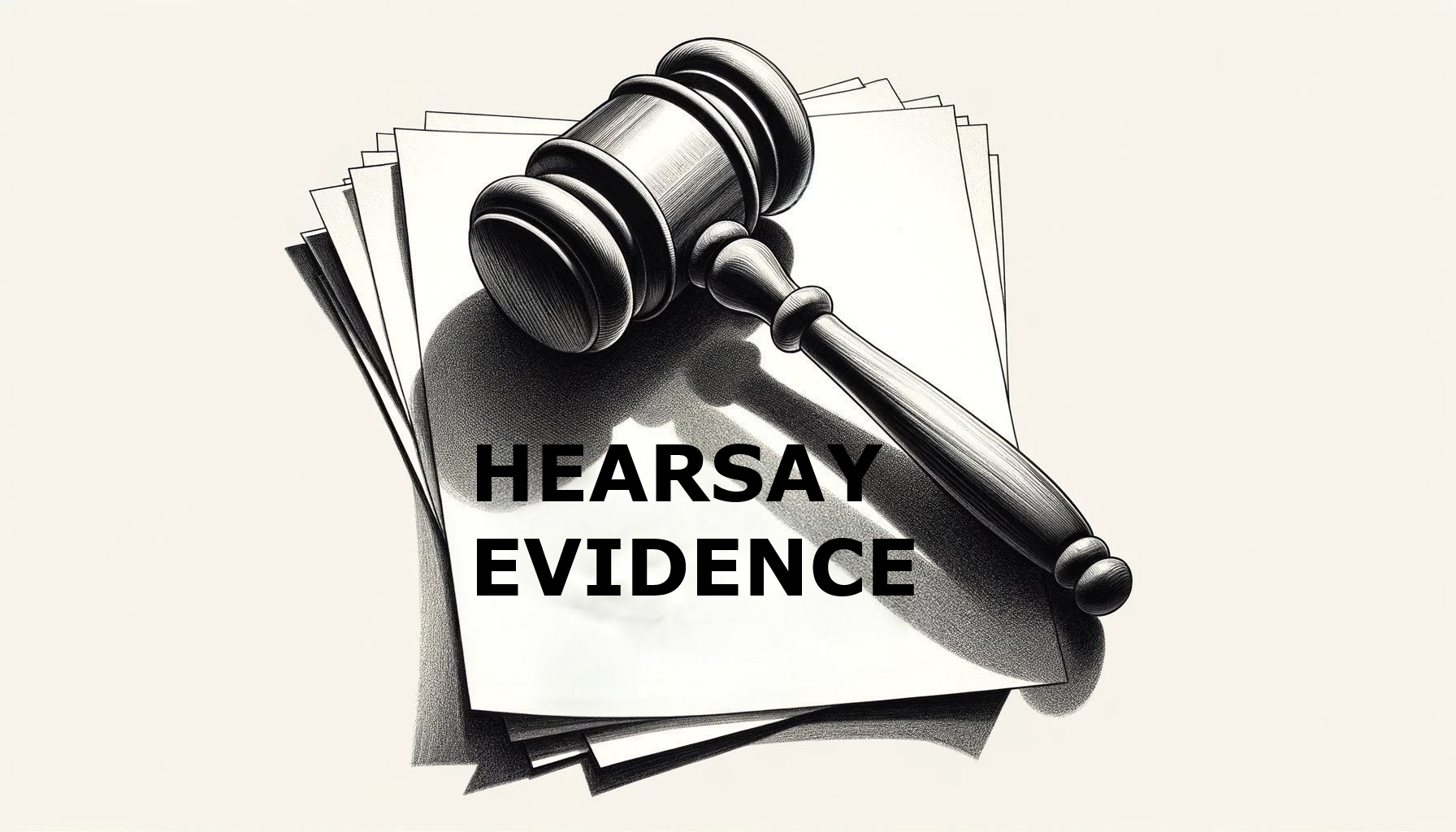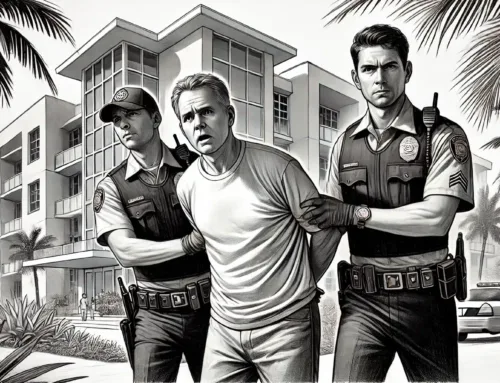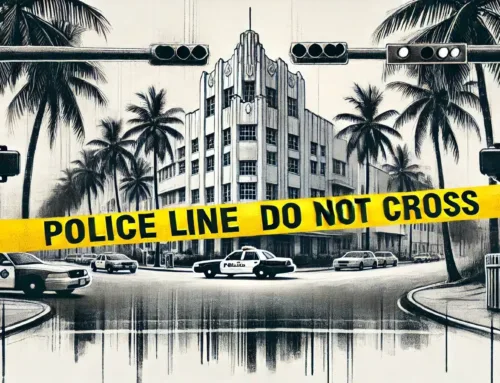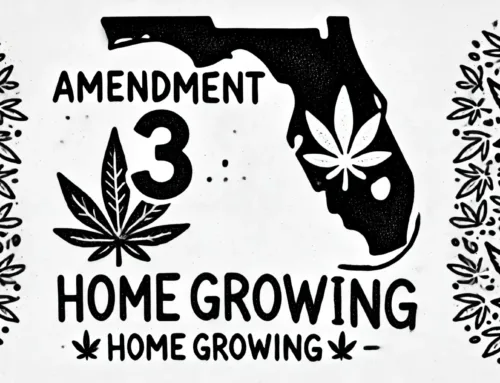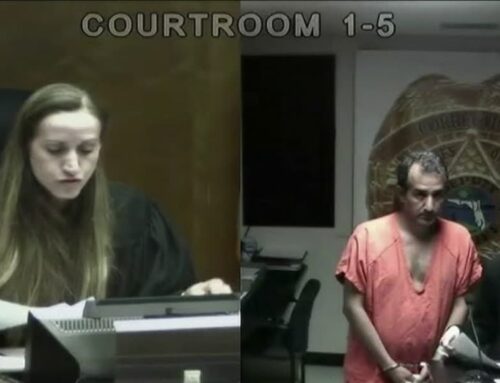Hearsay Evidence in Florida Criminal Trials
You’re sitting in court, watching the prosecutor question a witness on the stand. Suddenly, your defense attorney objects and shouts, “Hearsay!” But what does “hearsay” mean?
As your Miami criminal defense attorneys, we know Florida’s rules about hearsay evidence inside and out. We fight daily to prevent unreliable hearsay statements from being used against our clients. Keep reading to understand what hearsay is, when it can and cannot be admitted as evidence, and how we fight back against improper hearsay in court.
What’s Hearsay Evidence in Florida?
Hearsay evidence refers to an out-of-court statement offered to prove the truth of whatever it asserts. In other words, hearsay tries to use a statement made outside of court as evidence of a particular fact.
For example, if the prosecutor calls a witness who says, “My friend Bob told me that Joe committed the robbery,” that’s hearsay. The statement is being used to prove that Joe committed the robbery.
How to Determine if Something is Hearsay?
When evaluating whether a statement is objectionable as hearsay, the key initial questions we ask are:
Is the out-of-court statement being presented to establish or prove the truth of whatever it asserts? And 2) Was the statement made by someone other than the current testifying witness?
If the answer is yes to both questions, then the statement is likely hearsay. We thoroughly analyze the purpose and originating source of every statement offered as evidence to determine if a valid hearsay objection exists. Our attorneys understand that even subtle factual distinctions can make the difference between a statement being impermissible hearsay and permissible non-hearsay. We leverage our expertise to prevent unreliable hearsay while allowing non-hearsay statements that convey relevant background details and context.
Is Hearsay Admissible in Court?
Hearsay raises reliability concerns because the person who originally made the statement isn’t in court to have their credibility judged and questioned. As a result, hearsay evidence is generally prohibited under Florida Statute Section 90.802 and the evidence code.
However, many exceptions make hearsay admissible in court as evidence under certain circumstances. Our criminal defense lawyers thoroughly understand these exceptions, analyze them closely in each case, and argue to prevent unreliable hearsay from reaching jurors’ ears whenever possible.
Florida Hearsay Exceptions?
Florida hearsay exceptions are generally grouped into two categories under Florida law: those that apply whether the declarant is available to testify or not and those that only apply when the declarant is unavailable.
Section 90.803 of the Florida statutes covers exceptions where the availability of the declarant does not matter. These include excited utterances, statements made for medical diagnosis or treatment, business records, and other types of statements generally considered reliable regardless of the declarant’s availability.
On the other hand, Section 90.804 covers exceptions applying only when the declarant is unavailable to testify, whether due to death, illness, privilege claims, or other reasons. These “unavailability-based” exceptions include former testimony, dying declarations, statements against interest, and statements offered against a party that caused the declarant’s unavailability.
Evaluating whether a hearsay statement falls under a 90.803 “availability immaterial” exception or requires showing unavailability under 90.804 is critical in shaping strategic decisions on admission and objections. Our lawyers have deep expertise in applying Florida’s hearsay exception nuances.
While hearsay is generally prohibited, dozens of exceptions exist under Florida law. Some of the most common exceptions include:
Excited Utterances
If a statement relates to a startling event and is made while the declarant (the person who made the original statement) is under the stress or excitement of that event, it may be admissible even though it’s hearsay. The key factor is that the declarant made the statement spontaneously, without time for reflection or fabrication.
For example, the statement “That man just robbed me!” made to a police officer by a startled victim seconds after a robbery could likely come into evidence as an excited utterance.
Present Sense Impressions
Statements that describe or explain an event or condition, made while the declarant is actively perceiving it or immediately afterward, are considered reliable as present sense impressions. For instance, a witness exclaiming, “He’s running away with the stolen bag!” right after a theft occurs could be admitted as a present sense impression. We critically assess these statements to ensure they were truly spontaneous and not influenced by later events or reflections.
Then-Existing Mental, Emotional, or Physical Condition (State of Mind)
Statements about the declarant’s own current state of mind, emotions, or physical condition fall under this exception, as they are generally considered genuine expressions. For example, a victim’s statement during an incident, “I am terrified he will harm me,” might be admissible. Nevertheless, we scrutinize these statements to exclude those that might be self-serving or made with an ulterior motive.
Recorded Recollection
A recorded recollection is a document or recording that captures a person’s memory of an event when it was still fresh. An example is a journal entry made immediately after an event. These records are generally trustworthy, but we examine their creation to ensure they reflect accurate and untainted memories, not altered by external influences or lapses in memory.
Medical Statements Made For Diagnosis or Treatment
Hearsay statements made by patients to medical personnel for the purpose of diagnosis or treatment may also be admissible. The rationale is that people are honest with their doctors so they can receive proper care. However, if statements are made strictly for forensic examination purposes after the fact, this exception will not apply.
Business Records
Signed, contemporaneous business records can also be introduced as evidence under the hearsay exception rules for business records and public records. However, it’s critical to scrutinize the methods used in creating any business or public records offered as evidence and object when appropriate to block unreliable hearsay.
Party Opponent Admissions
In Florida and federal cases, hearsay statements may be introduced against opposing parties in litigation as party admissions. For instance, if the defendant told his friend he stole certain goods, that statement could be used as evidence because it constitutes an admission by the opposing party. We thoroughly evaluate the circumstances of any alleged admission to argue it should not be allowed for reasons like ambiguity, duress, insincerity, ignorance of the witness, policy, and reliability.
Statements Against Interest
This exception applies to statements that would have been against the declarant’s interest when they were made. Such statements are considered reliable because people do not typically make statements damaging to themselves unless they believe them to be true. An example of this could be a person admitting to a friend, “I was the one who embezzled the company’s money,” when such an admission could lead to criminal charges or civil liability. In assessing these statements, we critically examine the circumstances surrounding them to ensure that they genuinely went against the declarant’s interest and were not made under duress, coercion, or misunderstanding. It is also important to determine that the declarant had personal knowledge of the event or condition they described, adding to the reliability of their statement.
Prior Inconsistent Statements
Prior statements by witnesses that are inconsistent with their trial testimony may be used to challenge credibility and truthfulness. In Florida, some narrow exceptions also allow substantive use of prior inconsistent statements under specific circumstances. However, prior statements often constitute improper hearsay. As defense attorneys, we zealously argue to block admission of prior inconsistent statements at trial whenever grounds exist.
Public Records and Reports
Public records and reports are typically admissible due to their official nature. However, we closely analyze these documents for accuracy, completeness, and the method of their creation, especially in criminal cases where the stakes are high and the source of the information may impact its reliability.
Statements in Learned Treatises, Periodicals, or Pamphlets
Information from reputable sources like scholarly articles or official publications can be used as evidence. For example, a medical journal article might be admitted to support expert testimony. However, we scrutinize these sources for their relevance, authority, and contemporaneity to the issues at hand to ensure they are appropriate and reliable for the case.
Reputation Concerning Character
Hearsay about a person’s character reputation within their community is generally admissible. For instance, testimony about a person’s known honesty could be relevant. Nevertheless, we critically evaluate the source of these reputations and the basis for these beliefs to ensure they are not based on rumors or unfounded opinions.
Dying Declarations
Dying declarations encompass statements made by a declarant under the belief that their death is imminent concerning the cause or circumstances of what they perceive to be their impending death. This hearsay exception is predicated on the belief that the imminent prospect of death drives a person to speak truthfully. For example, a victim’s statement, “I’ve been shot by John Doe,” made while believing death is near, could be admitted as a dying declaration. However, in evaluating these declarations, we ensure that the declarant genuinely believed in the imminence of their death and that the statement is directly related to the cause or circumstances of the death. Verifying that these declarations are not influenced by confusion, medication, or other factors that could impair judgment or perception is crucial.
How Defense Lawyers Fight Hearsay in Florida Criminal Cases
As experienced criminal defense trial attorneys, we have an in-depth command of Florida’s complex, nuanced hearsay rules. We aggressively leverage our expertise to prevent unreliable hearsay from infecting trials, ensuring fairness and justice for the accused.
Whenever the prosecutor seeks to enter hearsay statements against our clients, we ask key questions such as:
- Is the out-of-court statement actually hearsay? Is it actually being offered to prove the truth of whatever it asserts? If not, a hearsay objection may not apply.
- Does the statement fall under a recognized exception? If so, the court may allow it over our objections. But often, the stated exception does not actually apply, or an ambiguity exists, we can highlight to block admission.
- Is the probative value substantially outweighed by the danger of unfair prejudice? Even for statements falling under a hearsay exception, we argue for exclusion when extreme prejudice substantially outweighs any probative benefit under Florida Statute Section 90.403.
- Can we undermine credibility and reliability? We vigorously cross-examine all witnesses claiming to have heard an out-of-court statement to undermine credibility. And we highlight factors corroding the statement’s reliability, like ambiguity, deception, ignorance, or flawed perception.
Leveraging every angle, we fight to prevent unreliable hearsay from poisoning the jury against our client. In bench trials, we educate the judge on the nuances of hearsay rules to exclude prejudicial statements.
With experienced defense attorneys in your corner, you can rest assured we’ll battle to prevent inadmissible hearsay from being used against you. Our mastery of evidentiary rules leaves no objection unturned in forcing prosecutors to fight fair.
Speak with Our Miami Criminal Defense Team About Hearsay Issues
Hearsay rules remain intensely complex and ever-evolving in Florida courtrooms. As your defense counsel, we stay sharp on all the latest developments in keeping hearsay out. No other firm fights harder to prevent unreliable statements from reaching jurors’ ears in criminal cases.
If you face criminal allegations, hearsay often plays an unseen role that can make or break your case. Learn how we leverage our unparalleled expertise in handling hearsay issues to build the most formidable defense in your corner.
CALL US NOW for a CONFIDENTIAL INITIAL CONSULTATION at (305) 538-4545, or take a moment to fill out our confidential and secure intake form.* The additional details you provide will greatly assist us in responding to your inquiry.
*Due to the large number of people who contact our law office requesting our assistance, it is strongly suggested that you take the time to provide us with specific details regarding your case by filling out our confidential and secure intake form. The additional details you provide will greatly assist us in responding to your inquiry promptly and appropriately.
THERE ARE THOUSANDS OF LAW FIRMS AND ATTORNEYS IN SOUTH FLORIDA. ALWAYS INVESTIGATE A LAWYER’S QUALIFICATIONS AND EXPERIENCE BEFORE MAKING A DECISION ON HIRING A CRIMINAL DEFENSE ATTORNEY ATTORNEY FOR YOUR MIAMI-DADE COUNTY CASE




